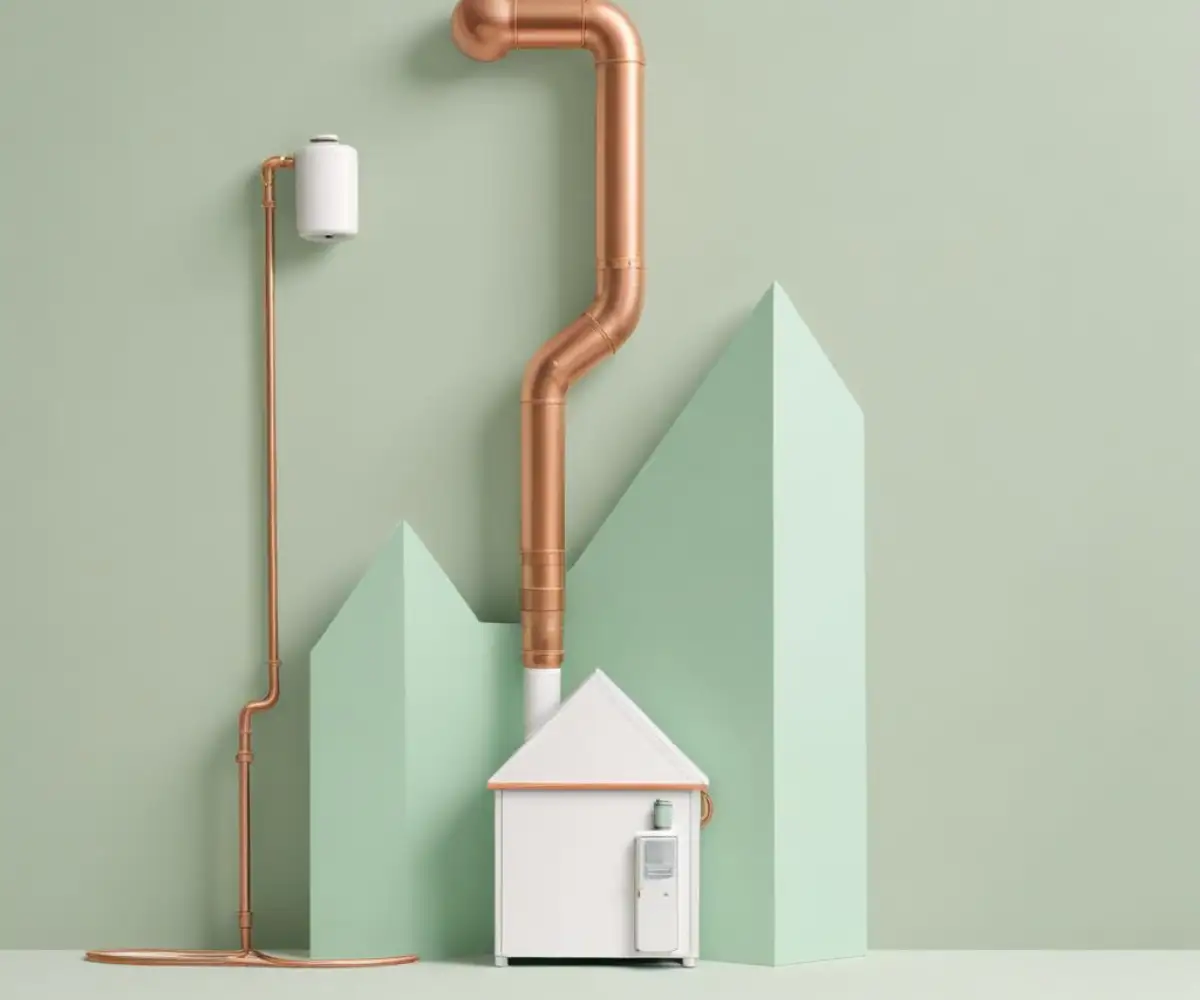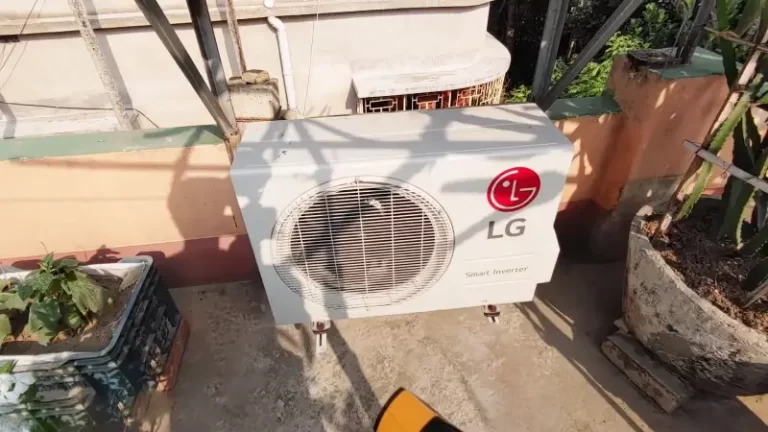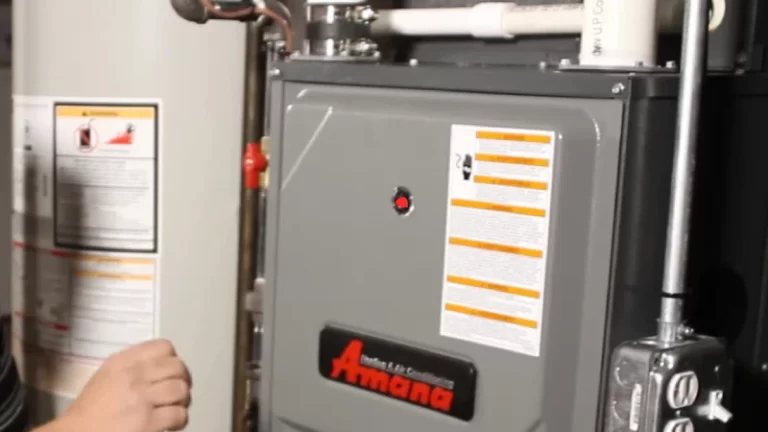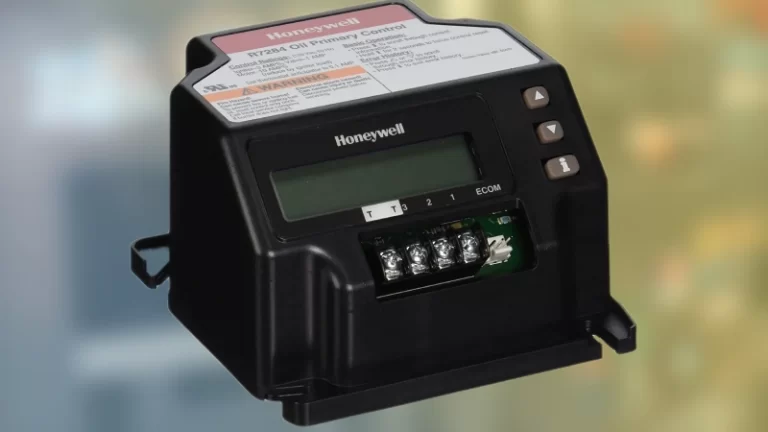Green Mountain Boiler Reviews: The Unfiltered Truth Before You Buy
Choosing a new boiler is one of the most significant and stressful decisions a homeowner can make. Faced with high energy bills, inconsistent heating, and the fear of a sudden breakdown, the pressure to select a reliable and efficient unit is immense. A poor choice leads to years of wasted money, chilly rooms, and costly repairs, turning a major home investment into a source of constant frustration.
Amidst a crowded market of well-known brands, Green Mountain boilers emerge as a contender, yet many homeowners find themselves asking: Are they truly worth the investment? The search for clear, unbiased information often leads to a dead end, filled with technical jargon and conflicting opinions. This guide cuts through the noise, providing an in-depth, honest review of Green Mountain boilers to help you make a confident and informed decision.
You'll Learn About
Decoding the Green Mountain Brand: What You Need to Know
Green Mountain is a brand under the umbrella of ECR International, a company with a long-standing presence in the heating and cooling industry. This association places them in a portfolio with other established names, lending a degree of manufacturing experience. Green Mountain primarily positions itself as a provider of reliable, no-frills heating solutions, often appealing to homeowners and contractors looking for durable, straightforward equipment.
Unlike premium brands that focus heavily on cutting-edge smart technology, Green Mountain’s core philosophy centers on robust construction and dependable performance. Their product line includes both standard-efficiency cast iron boilers and high-efficiency condensing models, catering to a range of home sizes, budgets, and heating requirements. The brand is often described as offering “builder grade” or “value line” products, but this shouldn’t be mistaken for poor quality; rather, it signifies a focus on essential functionality over luxury features.
The Heart of the System: Heat Exchangers and Core Technology
The performance of any boiler hinges on its heat exchanger, and Green Mountain offers two distinct types. Their traditional gas and oil-fired boilers, like the GMGW and GMPVB series, utilize heavy-duty cast iron heat exchangers. This material is renowned for its longevity and ability to retain heat, providing a slow, steady, and comfortable warmth throughout the home. Cast iron is exceptionally durable, making these boilers a solid choice for homeowners who prioritize a long service life over peak efficiency.
For those focused on maximizing energy savings, the high-efficiency GMHB and GMCB series feature stainless steel heat exchangers. These are essential for the condensing process, where the boiler extracts latent heat from exhaust gases that would otherwise be wasted. This technology allows these models to achieve impressive AFUE (Annual Fuel Utilization Efficiency) ratings of up to 95%, translating directly into lower monthly energy bills. While stainless steel is lighter than cast iron, it offers excellent corrosion resistance, which is critical in the acidic condensate environment of a high-efficiency boiler.
Green Mountain Boiler Models: A Head-to-Head Comparison
Navigating the different models is the first step to determining if Green Mountain has a solution for your home. Each series is designed for specific applications, from simple, rugged heating to combined heat and hot water in a single, efficient unit. Understanding the key differences in efficiency, venting, and function is crucial for making the right choice.
Below is a comparison of some of the most popular Green Mountain boiler series. This table breaks down their core specifications to give you a clear, at-a-glance understanding of what each model offers. From the workhorse cast iron units to the modern condensing boilers, this comparison will help you identify which product line aligns with your home’s needs and your energy-saving goals.
| Model Series | AFUE Rating | Heat Exchanger | Best For | Key Feature |
|---|---|---|---|---|
| GMHB Series | 95% | Stainless Steel | Energy-Conscious Homes | High-efficiency condensing technology for maximum fuel savings. |
| GMCB Series | 95% | Stainless Steel | Homes with Limited Space | Combination (Combi) boiler providing both heat and on-demand hot water. |
| GMPVB Series | Up to 84.4% | Cast Iron | Traditional Radiator Systems | Durable and reliable performance with a chimney-vented design. |
| GMGW-K Series | 84% | Cast Iron | Budget-Friendly Replacements | A straightforward, dependable boiler with an electronic ignition system. |

The Pros: What Homeowners and Installers Praise
Despite not being a household name like some competitors, Green Mountain has earned a solid reputation among many homeowners and HVAC professionals for several key strengths. These advantages focus on efficiency, reliability, and user-friendly operation, making them a compelling option for those who value practical performance over flashy features.
From significant reductions in utility bills to their quiet, unobtrusive operation, the benefits of choosing a Green Mountain boiler are tangible. Understanding what these units do well is essential for anyone considering them for their home heating needs.
Unmatched Energy Efficiency and Savings
The standout feature of the GMHB and GMCB series is their 95% AFUE rating. This high-efficiency performance is achieved through condensing technology, which captures and reuses heat from flue gases. For homeowners upgrading from older, less efficient units (which can operate at 70% AFUE or lower), the potential for energy savings is substantial. This translates to hundreds of dollars in reduced heating costs annually, allowing the boiler to pay for itself over its lifespan.
These models are designed to modulate their output, meaning they can adjust their energy consumption based on the actual heating demand of the home. This prevents the wasteful on-and-off cycling common in older boilers, ensuring a steady, comfortable temperature while using the least amount of fuel necessary. The financial and environmental benefits of this efficiency are a primary reason homeowners choose Green Mountain’s condensing line.
Reliability and Durable Construction
For those who prefer time-tested technology, Green Mountain’s cast iron boilers like the GMPVB series are celebrated for their durability. Cast iron is incredibly robust and can withstand the rigors of a hydronic heating system for decades with proper maintenance. This makes them a “set it and forget it” solution for many homeowners who prioritize longevity above all else. These units have fewer complex electronic components, which can mean fewer potential points of failure over the long term.
Even the high-efficiency models, with their stainless steel heat exchangers, are built for durability. Stainless steel provides excellent resistance to corrosion from the acidic condensate produced during the high-efficiency heating process. Green Mountain backs their products with a solid warranty, typically offering ten years of coverage on the heat exchanger and one to two years on parts, providing peace of mind for your investment.
Quiet and Compact Operation
A common complaint with older heating systems is the disruptive noise they create. Green Mountain boilers, particularly the wall-mounted condensing units, are designed for whisper-quiet operation. Their sealed combustion systems and modern components minimize the clanking and banging associated with traditional boilers, allowing them to be installed in or near living spaces without causing a disturbance.
The GMCB combi boiler, in particular, offers a significant space-saving advantage. By combining the functions of a boiler and a water heater into a single compact unit, it frees up valuable floor space in basements, utility closets, or garages. This makes it an ideal solution for smaller homes, apartments, or any household looking to declutter and optimize their mechanical room.
The Cons: Potential Downsides and Common Complaints
No boiler brand is without its drawbacks, and it is crucial to consider the potential challenges before making a purchase. While Green Mountain boilers offer solid performance and value, some users and installers have pointed out areas where they fall short of premium competitors. These concerns range from installation complexities to the nuances of their warranty coverage.
Addressing these potential issues head-on provides a balanced view and helps you anticipate challenges. From the upfront costs to finding qualified technicians, understanding these downsides is key to ensuring a smooth ownership experience.
Installation Costs and Complexity
High-efficiency condensing boilers, including those from Green Mountain, require a more complex installation than their traditional counterparts. They need specialized venting, typically with PVC pipes, and a condensate drain to dispose of the acidic water produced during operation. This requires an installer with specific training and experience in modern condensing systems. An improper installation can negate the boiler’s efficiency benefits and lead to premature failure.
Because of these requirements, the upfront installation cost can be higher than for a standard-efficiency unit. The overall expense, including the potential cost of a permit to replace an electrical panel if system upgrades are necessary, should be carefully factored into your budget. Homeowners should always get quotes from multiple certified HVAC professionals to ensure a fair price and proper setup.
Limited Brand Recognition and Parts Availability
Green Mountain is not as widely known as brands like Weil-McLain or Buderus. This can sometimes translate into challenges with finding local suppliers who stock a full range of replacement parts. While common components are often universal, proprietary parts may need to be ordered, potentially leading to delays during a heating outage.
Similarly, not every HVAC technician may be familiar with the specifics of Green Mountain models. It is vital to find an installer who has experience with the brand or is, at a minimum, well-versed in the ECR International family of products. This ensures that any troubleshooting or maintenance is handled correctly and efficiently.
Warranty Nuances and Labor Costs
While Green Mountain offers a respectable warranty on its heat exchangers, it’s important to read the fine print. Like most manufacturers, their warranty typically covers the cost of the replacement part but does not cover the labor required to diagnose the problem and install the new component. Labor costs can be significant, so this is an important out-of-pocket expense to be aware of.
Furthermore, the warranty is contingent upon the boiler being installed by a licensed professional and maintained according to the manufacturer’s guidelines. Failure to provide proof of annual service can void the warranty, leaving the homeowner responsible for the full cost of repairs.
Green Mountain vs. The Competition: How Do They Stack Up?
In the competitive boiler market, Green Mountain carves out a niche as a value-oriented brand focused on core performance. When compared to premium German brands like Viessmann or Buderus, Green Mountain may lack the same level of advanced, integrated smart technology and brand prestige. However, they often come in at a more accessible price point, making them an attractive alternative for budget-conscious homeowners.
Against other American brands known for durability, such as Weil-McLain or Burnham, Green Mountain’s cast iron models are very competitive. They offer similar rugged construction and reliable operation. Choosing between advanced systems can be a complex decision, much like deciding between Kinetico vs. EcoWater for water treatment; it ultimately comes down to matching the right technology and features to your home’s specific requirements and your long-term goals.
Maximizing Your Investment: Installation and Maintenance Tips
The performance and lifespan of any boiler, regardless of brand, are fundamentally tied to the quality of its installation and the diligence of its maintenance schedule. A top-of-the-line unit can fail prematurely if installed incorrectly, while a budget-friendly model can provide decades of reliable service with proper care. To get the most out of your Green Mountain boiler, it is crucial to start with a flawless installation and commit to regular upkeep.
Adhering to best practices not only ensures you benefit from the boiler’s full efficiency potential but also safeguards your warranty and prevents costly emergency repairs down the line. Regular maintenance can prevent larger issues from developing, much like how promptly addressing a small vertical crack in crown molding can avert more significant structural problems. Following a few key principles will protect your investment and guarantee a warm, comfortable home for years to come.
The Critical Role of a Certified Installer
The single most important factor in your boiler’s success is the professional who installs it. Do not cut corners here. Seek out an HVAC contractor who is licensed, insured, and has demonstrable experience with high-efficiency or cast iron boilers, depending on the model you choose. A qualified installer will perform a “Manual J” calculation to ensure the boiler is correctly sized for your home’s heating load—a unit that is too large or too small will operate inefficiently and wear out faster.
Furthermore, a professional will ensure all venting is correctly pitched, the condensate drain is properly installed, and the system’s water chemistry is balanced. They will also calibrate the boiler’s controls to optimize performance for your specific heating system (e.g., radiators, baseboard heaters, or radiant flooring). This initial setup is foundational to the boiler’s efficiency and longevity.
A Simple Annual Maintenance Checklist
Regular maintenance is not optional; it is essential for safety, efficiency, and reliability. While you should always hire a qualified technician for an annual service, there are a few things you can monitor yourself throughout the year. A yearly professional tune-up should include:
- Cleaning and inspecting the heat exchanger: To ensure maximum heat transfer.
- Checking all safety controls and sensors: Including the low water cut-off and pressure relief valve.
- Analyzing combustion efficiency: To ensure the boiler is burning fuel cleanly and completely.
- Cleaning the condensate system: To prevent blockages that can cause shutdowns.
- Inspecting venting for leaks or obstructions: To prevent dangerous exhaust gases from entering the home.
By following this simple but critical advice, you can ensure your Green Mountain boiler operates at peak performance, keeping your home warm and your energy bills low for its entire expected service life.
The Final Verdict: Is a Green Mountain Boiler Right for You?
After a thorough review of its technology, models, and real-world performance, Green Mountain establishes itself as a strong contender in the boiler market, particularly for homeowners who prioritize a balance of efficiency, durability, and value. The brand successfully caters to two distinct needs: high-efficiency heating with its condensing models and rugged longevity with its traditional cast iron units.
Your final decision should be guided by your specific priorities, your home’s infrastructure, and your budget. Green Mountain offers compelling solutions, but they are not a one-size-fits-all answer. By carefully weighing the pros and cons outlined in this guide, you can confidently determine if this brand is the right partner for your home’s heating needs.
Who Should Buy a Green Mountain Boiler?
- The Budget-Conscious Upgrader: If you are looking to replace an old, inefficient boiler without paying the premium price for a top-tier brand, Green Mountain’s high-efficiency models offer an excellent return on investment through energy savings.
- The “Built-to-Last” Homeowner: For those with older homes and cast iron radiator systems, the GMPVB and GMGW series offer a durable, straightforward replacement that is built to last for decades with minimal fuss.
- The Space-Saver: Anyone living in a smaller home, condo, or apartment will find the GMCB combi boiler to be an excellent solution for freeing up space by combining heating and hot water into one compact unit.
Who Should Look Elsewhere?
- The Smart Home Enthusiast: If you are seeking the latest in smart-home integration, with advanced controls and learning thermostats built directly into the boiler’s ecosystem, premium brands like Viessmann may be a better fit.
- The DIY Installer or Maintainer: Due to their complexity and warranty requirements, these boilers are not suitable for self-installation. Homeowners who prefer to handle all their own maintenance might find the need for professional annual service to be a drawback.
- The Homeowner in a Remote Area: If you live in a region with limited access to HVAC professionals or parts suppliers, you may be better served by a more ubiquitous brand to ensure prompt service and parts availability during an outage.



